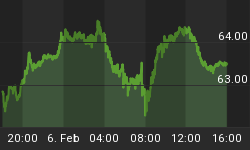It has been months now since the new healthcare reform bill was passed into law. As is so typical, this massive piece of legislation was passed with a sense of urgency so acute that leadership declared America could not afford to wait until legislators, their staff and the general public had time to thoroughly read the bill.
The truth comes out eventually, however. Much like the recently discovered exemption from Freedom of Information Act requirements for the SEC that was slipped into the equally massive and "urgent" financial reform bill, we are finally seeing what other insidiousness has been hiding in the fine print of the healthcare reform bill. It seems that all provisions in this poorly written and poorly conceived monstrosity need to be repealed as soon as possible.
One such disaster-waiting-to-happen is one of the revenue generating provisions used to claim that the healthcare reform bill was "paid for". $17 billion in additional tax revenues is supposed to come from an onerous new IRS reporting requirement that any taxpayer with business income who spends over $600 in one year with one business will have to report those expenditures to the IRS. Mind you, this is a cumulative total of $600 in transactions in one year. This will involve so much extra accounting and paperwork that the IRS claims it will be unable to deal with it effectively, and even the American Institute of Certified Public Accountants (to whom it should be a boon) has come out against it! Apparently they realize they will actually lose customers, especially small businesses, to bankruptcy because of this!
Gold dealers are especially alarmed by this provision, as most of their transactions easily top $600. This represents a significant outlay of time and paperwork and no additional revenue for businesses with which to hire people. Not to mention this makes every business a de facto IRS agent, as if they didn't have enough to worry about already!
Of course, there is a tremendous outcry against this. Several other legislators also see how unreasonable this is and are trying to repeal it. However, this would simply mean that $17 billion in healthcare funding will have to come from somewhere else, and there are no good options. Taxes from some other equally bad collection scheme? Borrowing and more debt? Creating more money from thin air and adding to inflationary pressures?
The best answer, of course, would be to repeal the entire health care law, along with all other unconstitutional spending. But Congress is more likely to continue the shell game to cover the fact that we are broke and can afford none of this.
This whole idea of "paying for" new programs is a political euphemism that suggests that raising taxes is just as good as cutting spending since neither one increases the national debt. Raising taxes and overwhelming small businesses with paperwork and regulations still increases governmental burden on our fragile economy. But this is our government's idea of "fiscal restraint" in action. Washington needs to stop creating new programs and spending so much money. That would be true fiscal restraint.















